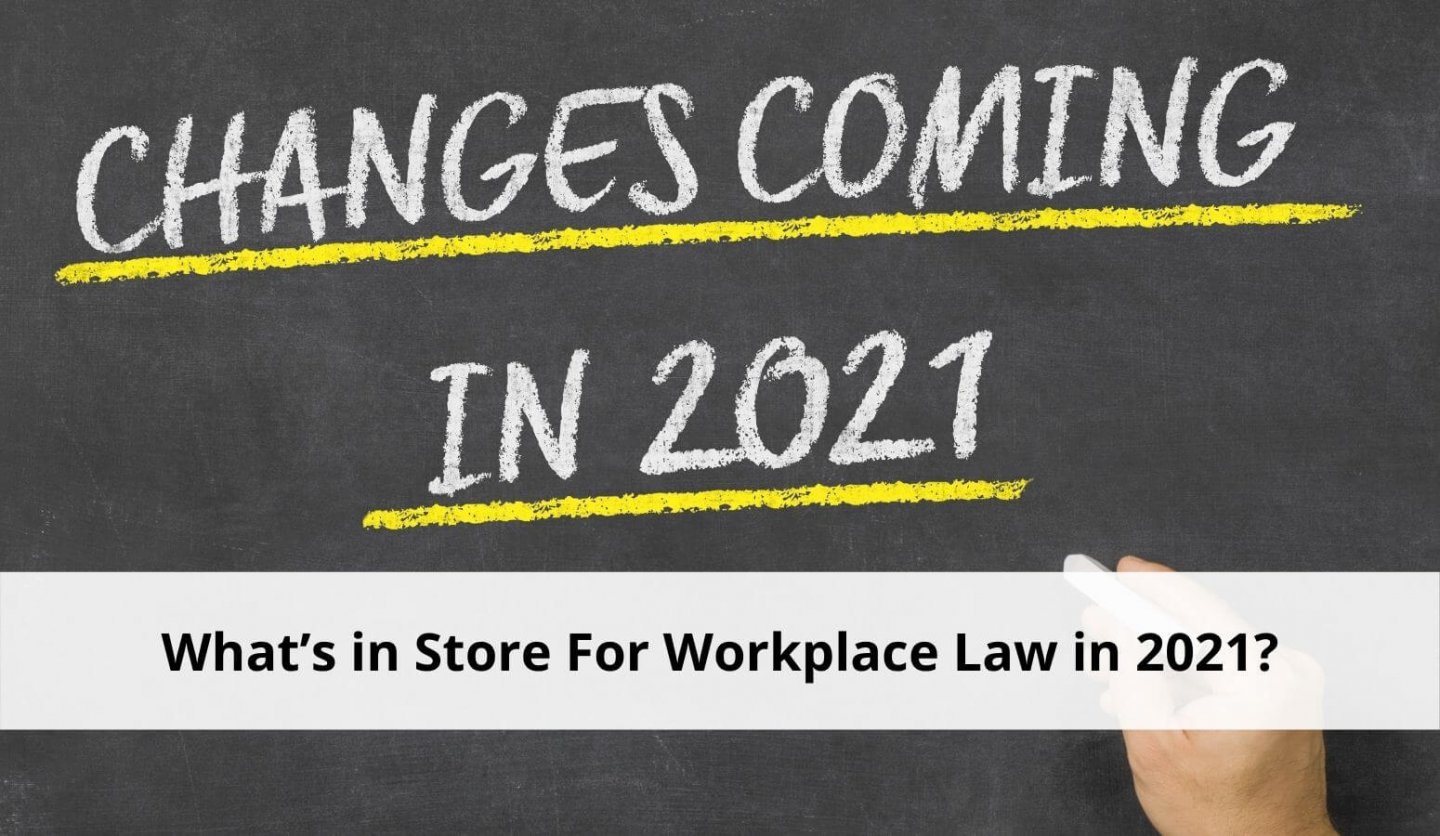
What’s in Store For Workplace Law in 2021?
Daniel Lublin, Special to The Globe and Mail
What’s in store for workplace law in 2021? Here are the hot-button issues presently facing Canadian employees.
- Can you be required to get vaccinated as a condition of employment?
The short answer is yes. Your employer can require you to be vaccinated as long as any bona fide religious beliefs or medical conditions receive appropriate accommodation. Front-line health workers will be the first to see mandatory vaccination rules but this will soon extend to any worker who works closely with customers, the general public, or in close proximity to other employees.
Once vaccines become more widely available and assuming the medical evidence continues to show such vaccines are overwhelmingly safe if you refuse to be vaccinated you risk dismissal but you must, in my opinion, be compensated with appropriate severance. Interestingly, for some workers, this will be a welcome choice.
- Employment contracts will be redrafted as part of the workplace law in 2021
No employer as far as I know has yet incorporated a requirement into an employment agreement or offer letter requiring vaccination as a condition of employment. In 2021, this will likely change. Many companies are in the process of rewriting employment agreements to address a variety of pandemic-related issues they face. Rewriting the contracts is easy. Implementing those agreements is another story. Once you have already started employment, you cannot be forced to sign a new contract as a condition of continued employment and you must be provided with something of additional value in order to make those contracts valid.
- Can you be required to cancel or change travel plans?
With the recent news of politicians and executives publicly deposed for traveling over the winter break, workers want to know where they stand.
Your employer generally cannot dictate where you choose to spend your vacation. At this time last year, most would scoff at the idea that an employer would have the right to even ask where you plan to go. However, the mandatory 14-day quarantine period for anyone leaving this country creates an interesting loophole. Even with proof of a negative COVID-19 test, now mandatory for returning air travelers, a quarantine is still required. Thus, some employees are effectively extending their holidays by an additional two weeks, particularly those who were not previously working remotely. Your employer need not pay you for this time and you are not entitled to accommodation upon returning to a travel-based quarantine through the sudden creation of remote work. In light of this, the next question is whether you can now be fired for traveling outside of Canada. The answer is a qualified yes, but only with appropriate warnings and absent that, only with proper severance.
- If you were temporarily laid off, what are your rights – workplace law 2021?
Prior to COVID-19, there was no question that an unpaid layoff for any period of time was likely to give rise to a right to claim severance for the vast majority of workers. However, government-imposed shutdowns or lockdowns and a series of amendments to provincial employment statutes has made the present answer to this question far more unclear. Here is some clarity: First, look to see if you signed an employment agreement that allows your employer to temporarily lay you off. Second, was your employer required to shut down or close? If so, were you recalled when your employer resumed operations or recalled others but not you? Third, did you agree to the layoff (expressly or by failing to protest when you were originally sent home or when you were not recalled when first expected)? If the answers to these questions are all no, then despite provincial statutes you still have a right to make a claim for severance but you should not wait to do so.
- You may be recalled to the workplace
As vaccines roll out to the general public, the arguments in favour of continued remote work will diminish. Many workers who were allowed to work from home will be told to return to their offices, on at least a part-time basis. You may not feel comfortable doing so over health and safety concerns. However, the law does not accommodate your subjective safety fears, only objectively unsafe working conditions. If appropriate precautions are put into place, it will be difficult for you to legally refuse a recall. If you are provided with notice of a recall and you refuse to return absent a bona fide medical condition or child-care/elder-care requirements, you risk job abandonment without severance.
- Child-care accommodation is required – to a point
If you are unable to obtain child-care when your usual arrangements are unavailable, then your employer must accommodate you, but only to a point. Many workers incorrectly assume that an employer must simply agree to a revised work schedule or remote work in order to meet its legal requirements. This is only partly true. You must first look for alternative options for child-care and only if those do not exist do you have a right to remain at home. If your work can be performed remotely, then this solution should be provided. If your job cannot be performed remotely, then you are entitled to time off from work for those responsibilities, but it need not be paid. You cannot be fired in these circumstances.
Daniel A. Lublin is the founding partner of Whitten & Lublin, Employment & Labour Lawyers. Do you have a question about workplace law? If you are looking for employment lawyers and would like more information about what Whitten & Lublin can do for you, please contact us online or by phone at (416) 640-2667 today.



